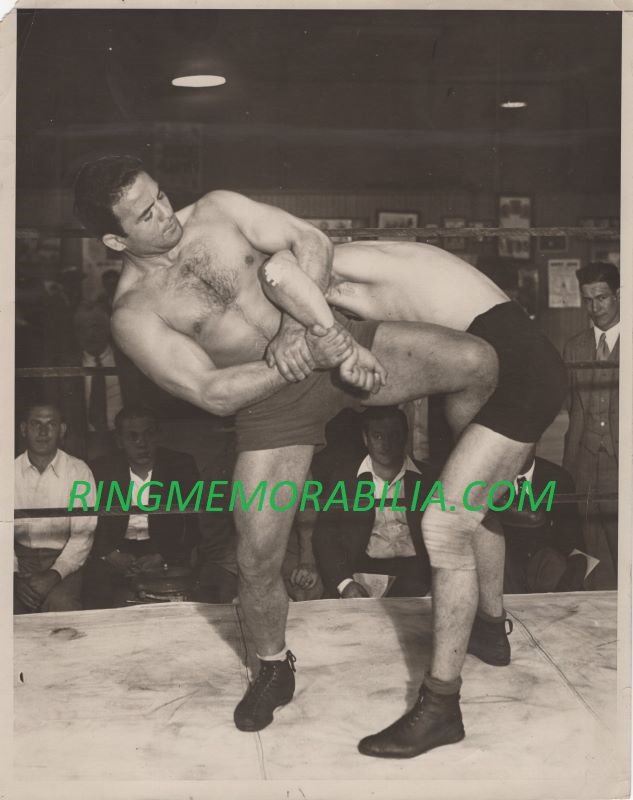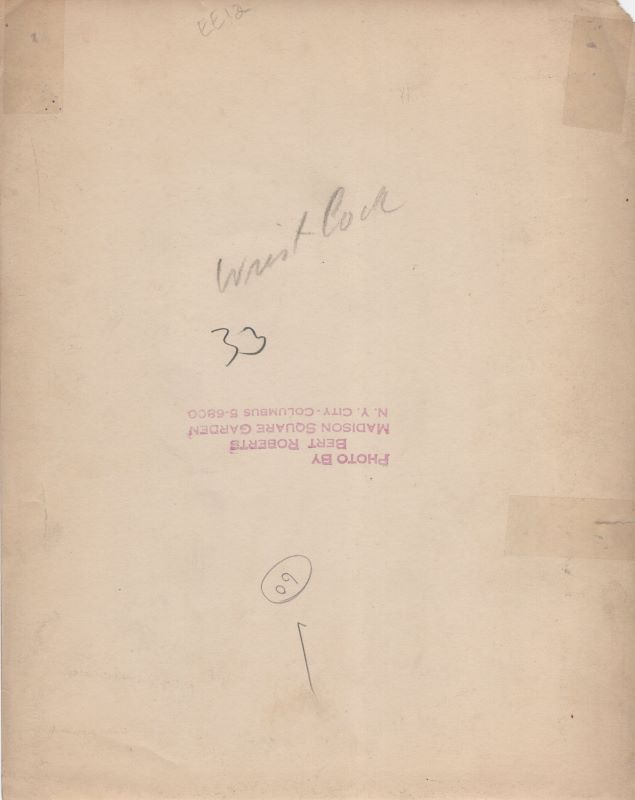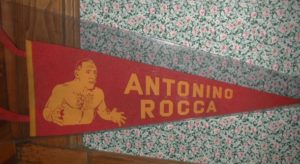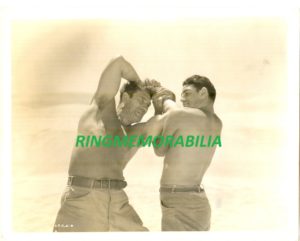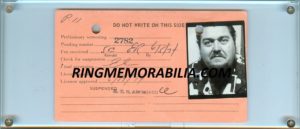Description
Christos Theofilou (Greek: Χρήστος Θεοφίλου; January 2, 1894 – August 19, 1975), better known as “The Golden Greek” Jim Londos (Greek: Τζίμ Λόντος), was a Greek American professional wrestler. Londos was one of the most popular stars on the professional wrestling circuit in the 1930s and 1940s. Jim Londos was born Christos Theofilou in 1897 in Koutsopodi, Argos, Greece as the youngest of thirteen children of Theophilos and Maria. Before arriving in the United States, in his native Greece young Londos was a shepherd. His father, Theophilos was an amateur wrestler of considerable reputation, and is credited with having instructed his young son in some of the fundamentals. At age thirteen he ran away from home and eventually emigrated to the United States. Working whenever he could, Theofilou took several odd jobs including cabin boy, construction jobs, and posing nude for figure drawing classes. Theofilou landed a job as a catcher in a carnival acrobatic act. It was during this period that he was exposed to professional wrestling and began training. Londos’ first matches, from 1912, were as “The Wrestling Plasterer” Christopher Theophelus, a gimmick that saw him coming to the ring in overalls. After a number of years, he dropped this in favour of wrestling under the name Jim Londos and being a no-nonsense professional wrestler. To compensate for his lack of wrestling ability, Londos traded on his good looks and well-muscled physique. He capitalized on this by having himself matched up against the ugliest opponents he could find. This worked very well and Londos became one of the most popular wrestlers in the 1930s & early 1940s while continuing to attract large crowds until 1959. Just before his retirement he married American woman Arva C. Rochwite (1912-1998), who was born in Clayton, Missouri. At the time of their marriage, Rochwite was described in press reports as a “St. Louis Aviatrix.” The couple had three daughters: Diana, Demetra, and Christina. The Londos family moved to Escondido, California, where they settled on a 10-acre site nestled in an avocado grove. There, Londos quietly managed his orchard and other investments; he devoted the rest of his public life to charity. Londos was considered a national hero in Greece. When he traveled there, one of his matches drew a crowd estimated as nearly 100,000 fans.

